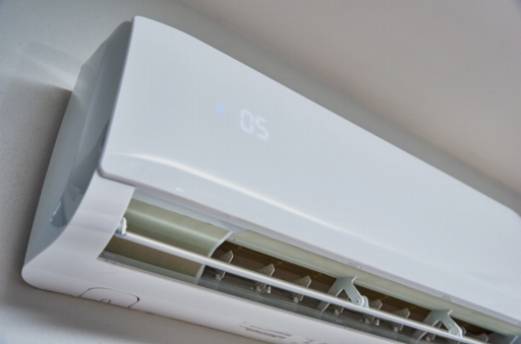When it comes to creating a comfortable and healthy home environment, air quality is a crucial factor to consider. With the advancement of technology, central air conditioning systems have become an integral part of modern homes, offering not only temperature control but also the potential to improve indoor air quality. In this article, we will explore the various ways in which central air conditioning can contribute to cleaner and healthier air, from filtration systems to ventilation solutions and smart thermostat options. By understanding the role of central air conditioning in air quality improvement, homeowners can make informed decisions to create a more pleasant and healthy living space.

Central Air Conditioning and Air Quality
Central air conditioning plays a significant role in maintaining good indoor air quality in modern homes. As the primary system responsible for cooling and circulating air throughout the entire house, central AC has the potential to improve air quality by filtering out indoor pollutants and controlling humidity levels. In this article, we will explore the various ways central air conditioning can contribute to better air quality and the importance of regular maintenance and upgrades for a healthier living environment.
Understanding Indoor Air Pollutants
Indoor air pollutants can have a significant impact on the air quality within a modern home. These pollutants can come from a variety of sources, including dust, pet dander, mold, and volatile organic compounds (VOCs) from household products. Additionally, activities such as cooking and cleaning can also release pollutants into the air. Understanding the sources of indoor air pollutants is crucial in addressing and improving air quality within the home.
Air Filtration Systems in Central AC Units
One of the key components of central air conditioning systems is the air filtration system. This system plays a crucial role in improving indoor air quality by capturing and removing various indoor air pollutants such as dust, pollen, pet dander, and other allergens. The filtration system consists of filters that trap these particles as air circulates through the HVAC system. Regularly changing and maintaining these filters is essential for ensuring that the air being circulated throughout the home is clean and free of harmful pollutants. Additionally, some central AC units are equipped with advanced filtration technologies such as HEPA filters, which are highly efficient at capturing even smaller particles, further enhancing the air quality in the home. Overall, the air filtration system in central AC units is a key factor in improving indoor air quality and creating a healthier living environment for homeowners.
The Role of Regular Maintenance for Cleaner Air
Regular maintenance is essential for ensuring that central air conditioning systems are effectively removing indoor air pollutants and providing clean, fresh air. Over time, dust, dirt, and other contaminants can build up in the system, reducing its ability to filter and circulate clean air. By scheduling regular maintenance, such as changing filters and cleaning coils, homeowners can ensure that their central AC unit continues to effectively improve air quality within the home. Additionally, regular maintenance can also help to identify and address any potential issues with the system that could impact air quality, such as leaks or mold growth. By prioritizing regular maintenance, homeowners can enjoy cleaner, healthier air throughout their modern home.
Ventilation Solutions in Central Air Conditioning Systems
When it comes to central air conditioning systems, ventilation plays a crucial role in maintaining good indoor air quality. Proper ventilation solutions help to ensure that fresh air is circulated throughout the home, while also removing indoor air pollutants. By incorporating effective ventilation systems into central AC units, homeowners can significantly improve the overall air quality within their living spaces. This not only promotes a healthier environment for occupants but also helps to reduce the presence of allergens and other potential respiratory irritants.
Smart Thermostats and Air Quality Control
Smart thermostats are becoming increasingly popular in modern homes, and for good reason. Not only do they provide convenience and energy savings, but they also play a significant role in maintaining good indoor air quality. These thermostats are equipped with sensors that can detect changes in air quality and adjust the HVAC system accordingly. This means that they can regulate humidity levels, monitor air filtration, and even provide alerts when air quality is compromised. By integrating smart thermostats into central air conditioning systems, homeowners can take proactive measures to ensure that the air in their home is clean and healthy.
The Benefits of Upgraded HVAC Technologies for Health
Upgraded HVAC technologies offer a range of benefits for health. By incorporating advanced filtration systems and ventilation solutions, these technologies can effectively remove indoor air pollutants and improve overall air quality. This can lead to a reduction in respiratory issues and allergic reactions, as well as a decrease in the spread of airborne illnesses. Additionally, smart thermostats and air quality control features allow for better management of indoor environments, creating a more comfortable and healthy living space for occupants. Overall, the use of upgraded HVAC technologies can significantly contribute to a healthier home environment.
